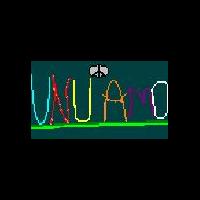Tin nhắn: 14
Nội dung: English
tommjames (Xem thông tin cá nhân) 13:21:59 Ngày 03 tháng 9 năm 2009
horsto (Xem thông tin cá nhân) 15:29:07 Ngày 03 tháng 9 năm 2009
erinja (Xem thông tin cá nhân) 15:52:37 Ngày 03 tháng 9 năm 2009
If a child finds a wallet on the street, what is the "right thing" to do? From one point of view, the "right thing" is to keep it, because it likely contains money. But if this child's father should come up and say "Do the right thing", it is clear to us that the father wants the child to take the wallet to the police, or somehow try to find its owner.
In that respect I'd translate the phrase as "Agu juste"
ĝusta means right as in, not incorrect
justa means right in the sense of being just and morally right.
It depends on the nuance you want though. The phrase could also be used in cases where morals weren't at stake, only difficult decisions.
diogotux (Xem thông tin cá nhân) 16:14:04 Ngày 03 tháng 9 năm 2009
Faru la dekstran aferon.
The best translation ever.
Mendacapote (Xem thông tin cá nhân) 16:50:55 Ngày 03 tháng 9 năm 2009
mnlg (Xem thông tin cá nhân) 19:56:32 Ngày 03 tháng 9 năm 2009
I think that 'agu ĝuste' can be a fitting translation, at least in a few occasions. My dictionary also suggests 'agu laŭ via bontrovo', or 'agu taŭge'.
Also 'agu saĝe' could work.
ceigered (Xem thông tin cá nhân) 01:17:01 Ngày 04 tháng 9 năm 2009
diogotux:Very simple:
Faru la dekstran aferon.
The best translation ever.
 Translating that back into English could be a bit awkward
Translating that back into English could be a bit awkward russ (Xem thông tin cá nhân) 19:19:17 Ngày 04 tháng 9 năm 2009
Greyshades (Xem thông tin cá nhân) 03:55:30 Ngày 08 tháng 9 năm 2009
Mendacapote:Erinja is right: Agu juste pli taŭgas.She always is

I'd say either "agu juste" aŭ "faru juste" would be easily understandable and get the meaning across

tommjames (Xem thông tin cá nhân) 09:22:26 Ngày 08 tháng 9 năm 2009
Faru la justan aferon appears only once in Google and Faru la ĝustan aferon doesn't appear at all, so I'm guessing this is a vernacularism of English that doesn't appear in Esperanto. The only reason I ask is forms like agu juste could be read as a general manner of behavior, whereas "the right thing" seems to suggest a single act. It would be nice if I could conserve this nuance.








